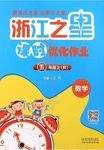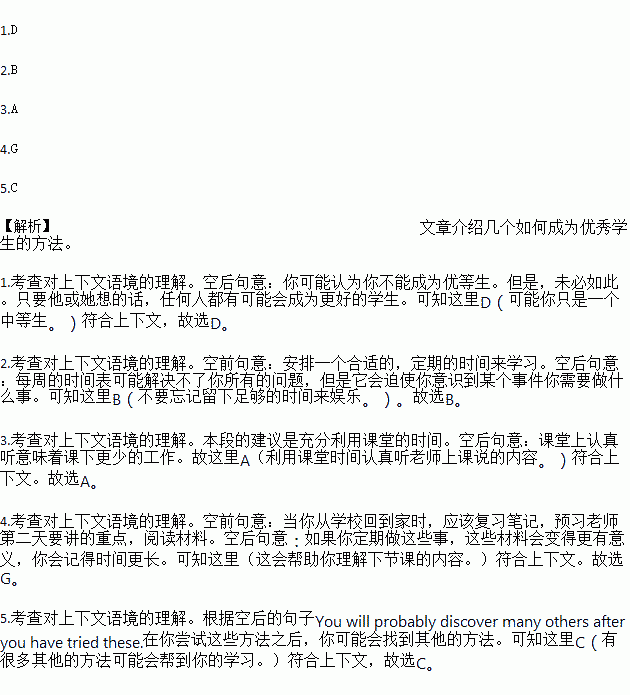题目内容
1.You probably think you will never be a top student. This is not necessarily so, however. Anyone can become a better student if he or she wants to. Here’s how:
◆Plan your time carefully. When planning your work, you should make a list of things that you have to do. After making this list, you should make a schedule of your time. First your time for eating , sleeping, dressing, etc. Then decide a good, regular time for studying. 2.A weekly schedule may not solve all your problems, but it will force you realize what is happening to your time.
◆Find a good place to study. Look around the house for a good study area. Keep this space, which may be a desk or simply a corner of your room, free of everything but study materials. No games, radios, or television. When you sit down to study, concentrate on the subject.
◆Make good use of your time in class. 3. Listening carefully in class means less work later. Taking notes will help you remember what the teacher says.
◆Study regularly. When you get home from school, go over your notes, review the important points that your teacher is going to discuss the next day, read that material. 4.If you do these things regularly, the material will become more meaningful, and you’ll remember it longer.
◆Develop a good attitude towards tests. The purpose of a test is to show what you have learned about a subject. They help you remember your new knowledge. The world won’t end if you don’t pass a test, so don’t be over worried.
5.You will probably discover many others after you have tried these.
A. Take advantage of class time to listen to everything the teacher says.
B. Don’t forget to set aside enough time for entertainment.
C. There are other methods that might help you with your studying.
D. Maybe you are an average student.
E. No one can become a top student unless he or she works hard.
F. Make full use of class time to take notes of what the teacher says in class.
G. This will help you understand the next class.
 小学数学口算题卡脱口而出系列答案
小学数学口算题卡脱口而出系列答案 优秀生应用题卡口算天天练系列答案
优秀生应用题卡口算天天练系列答案 浙江之星课时优化作业系列答案
浙江之星课时优化作业系列答案

 guage newspaper
guage newspaper